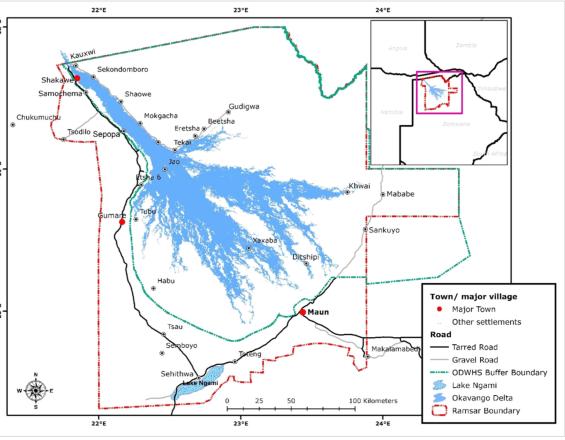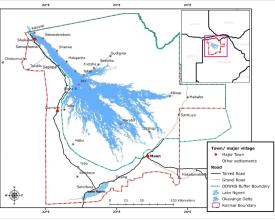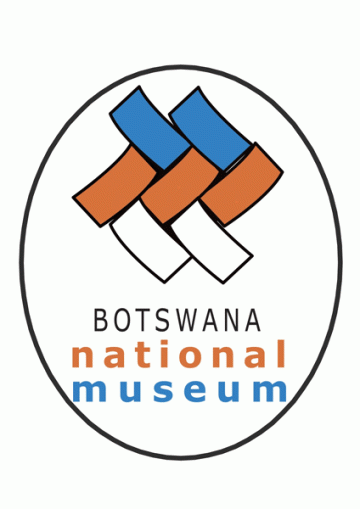
Laboratorio del Equipo de Investigación y Práctica del Sitio del Patrimonio Mundial del Delta del Okavango

Okavango Delta World Heritage Site Research-Practice Team Lab es un equipo colaborativo multidisciplinar fundado en 2021 en el marco del ICCROM-IUCN World Heritage Leadership Heritage Place Lab para salvar las distancias entre las partes interesadas que cuidan del sitio. En este proceso, la Cátedra UNESCO de Estudios del Patrimonio Africano y Desarrollo Sostenible de la Universidad de Botsuana y el Museo Nacional de Arte y Galería de Botsuana se han asociado para desarrollar una plataforma compartida en la que investigadores y gestores del sitio puedan coproducir investigaciones colaborativas que informen el desarrollo de políticas de gestión. Nuestro objetivo es contribuir a la protección y comprensión del Valor Universal Excepcional del Sitio del Patrimonio Mundial del Delta del Okavango a través de un programa de investigación en curso que aborde las siguientes áreas:
1. 1. Sinergia y participación de las partes interesadas
2. 2. Cambio climático
3. Valores culturales locales
Impactos
El delta del Okavango desempeña un papel fundamental en el mantenimiento de la diversidad cultural humana y los sistemas de conocimiento relacionados con ella, así como en la conservación de una diversidad biológica y un ecosistema fluvial únicos. Como parte de la gestión de este gran paraje natural, el Equipo de Investigación-Práctica del Patrimonio Mundial del Delta del Okavango ha identificado prioridades de investigación y soluciones de gestión:
● Los valores socioculturales del sitio son reconocidos y necesitan ser documentados. Es necesario apreciar y documentar las prácticas indígenas y locales de diversos grupos étnicos de personas, ya que están entrelazadas con la naturaleza en el delta del Okavango;
● Las personas y la fauna coexisten y es necesario seguir explorando la coexistencia para la sostenibilidad. Es necesario infundir la ecopedagogía en la vida cotidiana de las personas que residen en la zona de vida salvaje del delta del Okavango;
● Existen estrategias de adaptación al clima que podrían tener una base local. Las comunidades locales refuerzan continuamente las estrategias de adaptación de los medios de subsistencia rurales y de los hogares a las perturbaciones (sequías recurrentes, lluvias intermitentes, daños en las cosechas, inundaciones, etc.).
Los conocimientos indígenas y científicos se están integrando y es necesario seguir explorando la coproducción de conocimientos y prácticas de gestión.

